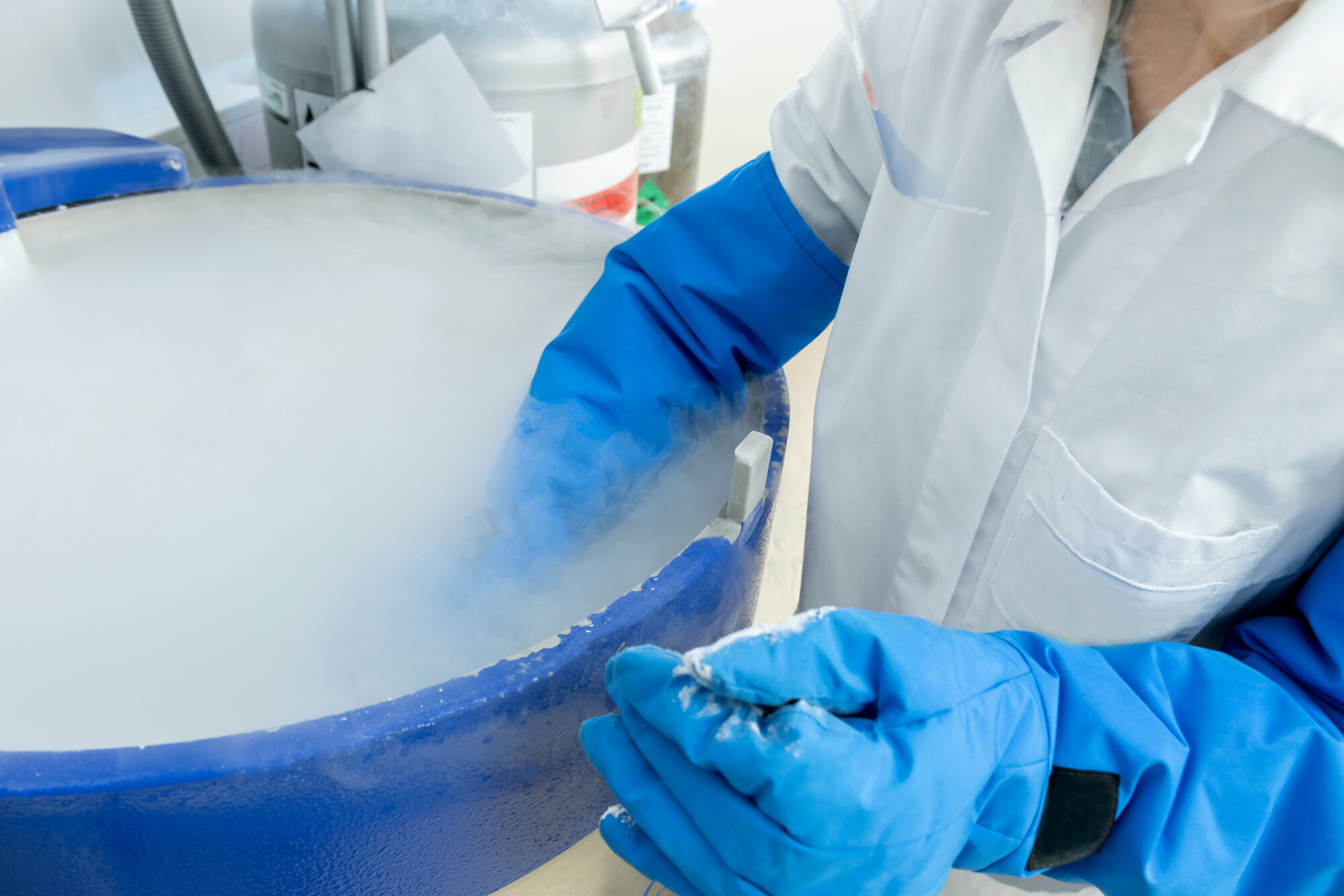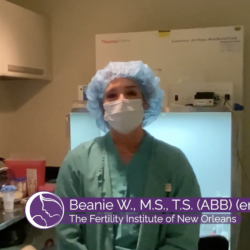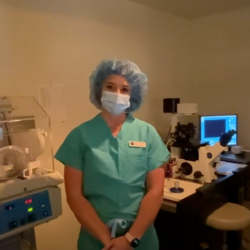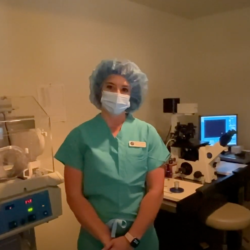
Our emergency preparedness plan helps our patients and keeps their stored embryos, eggs and sperm safe from any crisis
An ounce of prevention is worth a pound of cure – particularly when it comes to a natural disaster. With hurricanes regularly visiting New Orleans, The Fertility Institute knows a comprehensive natural disaster plan is particularly important to avert or limit any disruption.
At such times, patient care and protection of their reproductive specimens in our care are our top priorities.
IVF and ovulation induction changes during a hurricane or other emergency
During an emergency, our primary concern is safety, communication and continued care.
In the event of a natural disaster, power outage, fire, terrorist attack or other emergency, our offices may close to keep patients and employees safely in their homes. In these instances, in vitro fertilization (IVF) or ovulation induction cycles may be rescheduled at alternative locations if available, but may also be postponed or cancelled if deemed necessary for patient and staff safety.
Our website will share the latest updates about contact information, closures and openings. Existing patients can also reach us via the patient portal.
In the rare event that an entire area is evacuated or an emergency requires an office to close for an extended period of time, FINO will coordinate with patients to continue, postpone or cancel treatment.
Learn more about emergency protocols
How safe are eggs, embryos & sperm during a natural disaster?
As part of The Fertility Institute’s storm policy, any fresh specimens such as eggs or sperm will undergo cryopreservation prior to the lab’s closure due to a storm.
Frozen eggs, embryos and sperm are kept in super-cooled nitrogen tanks until they are needed for IVF treatment. Keeping them safe is a top priority for FINO, and we’ve worked diligently to do so.
Liquid nitrogen is what keeps tanks cold, not electricity. During a blackout or other power failure, FINO has safeguards to ensure proper nitrogen levels in cryopreservation tanks automatically for up to two weeks (and backup power just in case).
Our laboratory equipment, including cryopreservation tanks, are monitored 24 hours a day with an advanced alarm system. It gives immediate notification if there are temperature fluctuations or if the liquid nitrogen is out of temperature range. Moreover, our skilled lab technicians monitor the status of each tank to ensure proper function of all the equipment.
After the storm: saving embryos during Hurricane Katrina
At The Fertility Institute of New Orleans, we put patient care and communication first.
In August 2005, three successive, storm-related events occurred in New Orleans: first, Hurricane Katrina; second, massive flooding caused by levee breaks after the storm; and third, a second hurricane, Rita, only 3 1/2 weeks later.
It’s one of the nation’s worst disasters, causing unprecedented destruction throughout New Orleans. This included the abandonment of a nearby hospital, where FINO had moved several cryopreservation tanks to the third floor, for higher ground.
While storage tanks at room temperature were able to keep specimens safe for 30 days without issue, we knew these were potential lives at stake.
Working quickly with the National Guard, state troopers and a boat team, FINO rescued all specimens before nitrogen ran low. Frozen embryos were transferred to the Metairie location, and many have since been utilized in IVF.
Meet Noah, our Katrina embryo rescue baby
How our fertility clinic prepares for an emergency
When an emergency happens, situations can change often and quickly.
Having multiple preparation plans helps FINO respond quickly and appropriately to any issue, as we’ve learned with extreme weather events or unprecedented pandemics.
We also encourage patients to have their own emergency plan, including a list of medications, doctor information and contact information at hand.
If there is ever a question about our response or patient care, don’t hesitate to reach out.
Learn more about lab preparedness



